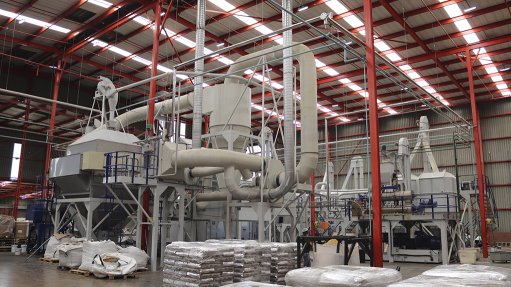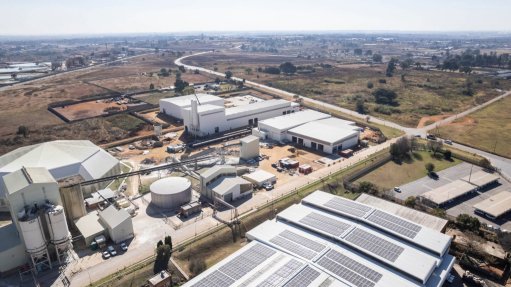Companies urged to tap IT skills concentrated in some regions


TERENCE MOOLMAN Companies must have ongoing training initiatives to arm the workforce with the correct skills in an ever-changing world
Concentrations of high-level information technology (IT) skills in various regions worldwide can be tapped to provide expertise and overcome constraints in local talent pools for companies in a particular region or market and multinational companies, says local industrial enterprise resource specialist company SYSPRO chief human resources officer Terence Moolman.
A shortage of high-level IT, analytics and Internet of Things (IoT) skills is expected worldwide, with about 66% of the global population falling behind in terms of available skills. Developing countries are forecast to have a 90% shortage of such critical skills over the next few decades as economies, industries and societies become digital.
The rate at which technology is developing is faster than the rate at which skills are being developed; however, the digitalisation of economies also reduces the requirement to have the skills physically present in a territory, he avers.
“We have to stretch our minds and how we think about our personnel and ready access to skills. Simultaneously, companies must start considering how they can tap into talent regardless of where it is, and how they can ensure that remote personnel and teams adhere to the company’s culture and work ethics.”
The skills shortage is a short- and long-term challenge for companies in specialised industries, especially in South Africa. While it remains important to foster skills development – especially to ensure leadership succession in companies – it takes several years for these talent pipelines to provide the required skills.
“In the short term, it is expected that companies will leverage these pockets of talent, such as those found in Singapore, Silicon Valley, Eastern Europe and Canada, to support the development of business systems and broader digitalisation efforts.”
Moolman highlights that companies must also develop strategic approaches to talent, for example, determining which skills are required in-house and which skills can be tapped to fulfil specific temporary needs.
Companies’ human resources departments should familiarise themselves with the talent pools – for example, Eastern Europe is known for comprehensive IT skills, whereas Asia-Pacific cities, including Singapore and Tokyo, are known for IT innovation.
However, any use of distributed talent pools does not remove the need for companies to have skills on hand in the territories in which they operate. Companies must continue to invest in training and skills development in the territories in which they operate to ensure that they have talent available to meet customer requirements and operational business needs.
The sharing of skills is growing and may become inevitable, Moolman adds. The International Data Corporation’s ‘2019 Futurescape’ report notes that two-million jobs in artificial intelligence (AI), IoT, cybersecurity and blockchain will remain unfulfilled by 2023, owing to a lack of human talent.
“This requires companies and human resource practitioners to think strategically about the optimal use of talent when required and in the context of the needs of the broader business. Pockets of talent can serve as extensions of the company’s skills pool,” he says.
The skills shortages must also prompt an ecosystemwide response, because clients and service providers must have access to skills to support new systems and solutions when they are released.
“Our human resources department works closely with our research, development and innovation teams to ensure that we have skills in-house to support new technologies, and that our clients and our supply chain partners also have access to these skills,” he highlights.
SYSPRO has developed and integrated various modules into its solutions for its industrial clients to enable them to use AI and advanced analytics to support their operations. Similarly, it must respond to demands from clients to support new industrial technologies – hence, its own focus on access to skills and skills development.
Article Enquiry
Email Article
Save Article
Feedback
To advertise email advertising@creamermedia.co.za or click here
Comments
Announcements
What's On
Subscribe to improve your user experience...
Option 1 (equivalent of R125 a month):
Receive a weekly copy of Creamer Media's Engineering News & Mining Weekly magazine
(print copy for those in South Africa and e-magazine for those outside of South Africa)
Receive daily email newsletters
Access to full search results
Access archive of magazine back copies
Access to Projects in Progress
Access to ONE Research Report of your choice in PDF format
Option 2 (equivalent of R375 a month):
All benefits from Option 1
PLUS
Access to Creamer Media's Research Channel Africa for ALL Research Reports, in PDF format, on various industrial and mining sectors
including Electricity; Water; Energy Transition; Hydrogen; Roads, Rail and Ports; Coal; Gold; Platinum; Battery Metals; etc.
Already a subscriber?
Forgotten your password?
Receive weekly copy of Creamer Media's Engineering News & Mining Weekly magazine (print copy for those in South Africa and e-magazine for those outside of South Africa)
➕
Recieve daily email newsletters
➕
Access to full search results
➕
Access archive of magazine back copies
➕
Access to Projects in Progress
➕
Access to ONE Research Report of your choice in PDF format
RESEARCH CHANNEL AFRICA
R4500 (equivalent of R375 a month)
SUBSCRIBEAll benefits from Option 1
➕
Access to Creamer Media's Research Channel Africa for ALL Research Reports on various industrial and mining sectors, in PDF format, including on:
Electricity
➕
Water
➕
Energy Transition
➕
Hydrogen
➕
Roads, Rail and Ports
➕
Coal
➕
Gold
➕
Platinum
➕
Battery Metals
➕
etc.
Receive all benefits from Option 1 or Option 2 delivered to numerous people at your company
➕
Multiple User names and Passwords for simultaneous log-ins
➕
Intranet integration access to all in your organisation



















